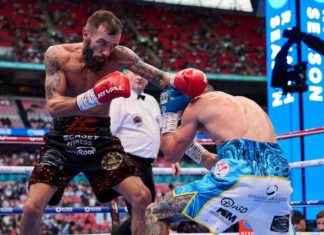The Confederation of African Football (CAF) had decided, during its last executive committee, held in March in Kigali, to change the format of qualifications for the 2026 World Cup, which will take place in the United States, Canada and the United States. Mexico, abandoning the system of preliminary rounds. The fifty-four nations affiliated to the International Football Federation (FIFA) have been divided into 9 groups of 6, the first of which will qualify. The four best runners-up will compete in a play-off, the winner of which will face a team from the Concacaf zone (North, Central America and the Caribbean) for a final ticket to the World Cup.
The tournament, which will be played by 48 teams, will therefore allow 9 or 10 African nations to participate in the final phase, against 5 until that of 2022 in Qatar. The draw, carried out on Thursday July 13 in Abidjan, was as always lenient for some and less so for others.
Morocco, which had the best African performance in the World Cup by finishing fourth in Qatar, inherited an affordable group with Zambia, Congo, Tanzania, Niger and Eritrea. “We are going to face Morocco, which is the best team in Africa. Our goal is to join in the fight for second place, ”says Jean-Michel Cavalli, the French coach of Niger, with modesty.
Algeria, Cameroon and Tunisia well served
Cameroon (Cape Verde, Angola, Eswatini, Libya, Mauritius), Algeria (Guinea, Uganda, Mozambique, Botswana, Somalia) and Tunisia (Equatorial Guinea, Namibia, Malawi, Liberia, Sao-Tome-and-Principe ) have, at least on paper, a solid chance of competing in the next world meeting.
Not all seeded players have been so well served, however. Côte d’Ivoire, whose performance has been declining for several years, will have to fight hard with Gabon, Kenya and Gambia in particular. “The Ivorians are stronger but I think it will be a fairly open group. (…) Anything can happen, ”prognosticates Tom Saintfiet, the Belgian coach of the Gambian Scorpions, quarter-finalists of CAN 2022 in Cameroon.
The task will also be difficult for Senegal, which will find in group B its Mauritanian neighbor, the Democratic Republic of Congo (DRC), Togo, Sudan and South Sudan. “It’s one of the most complicated groups. Senegal remain the best team in the group, they are the favourites, but we intend to defend our chances until the end”, promises Sébastien Desabre, the French coach of the Congolese Leopards and whose last appearance in the final phase dates back to to 1974. His Italian counterpart Stefano Cusin, in charge of South Sudan, was meanwhile enthusiastic about the idea of ??facing Senegal and the DRC. “I am delighted, because it is by facing teams of this caliber that a selection like mine will progress. We will also play against Sudan, a real derby, and I hope we can receive our opponents in our new stadium in Juba. »
Mali and Burkina can believe it
Other groups promise to be difficult for some African tenors. Nigeria will have to get rid of Benin, South Africa and Zimbabwe in particular, while Mohamed Salah’s Egypt will find on its way four selections present at CAN 2022: Burkina Faso, Sierra Leone, Ethiopia and Guinea-Bissau). “It will be tight,” warns Hubert Velud, the French coach of the Etalons Burkinabés, despite everything optimistic about the chances of his players.
Mali is also aiming for a first qualification for the World Cup, an objective defined by Eric Chelle, its coach. “Our chances are real, especially if we confirm our good results of the last few months. The first two days of qualifying will take place in November.







